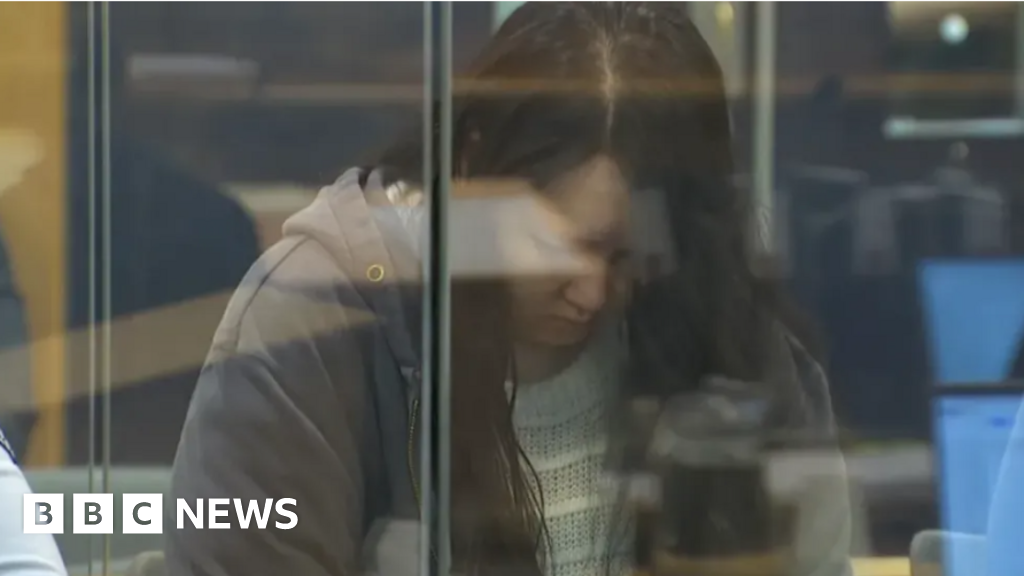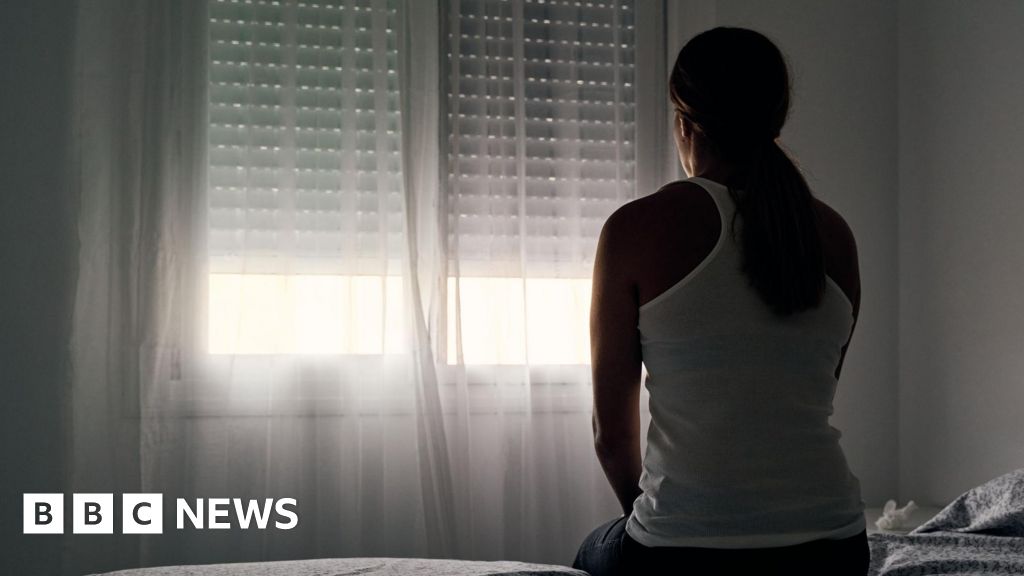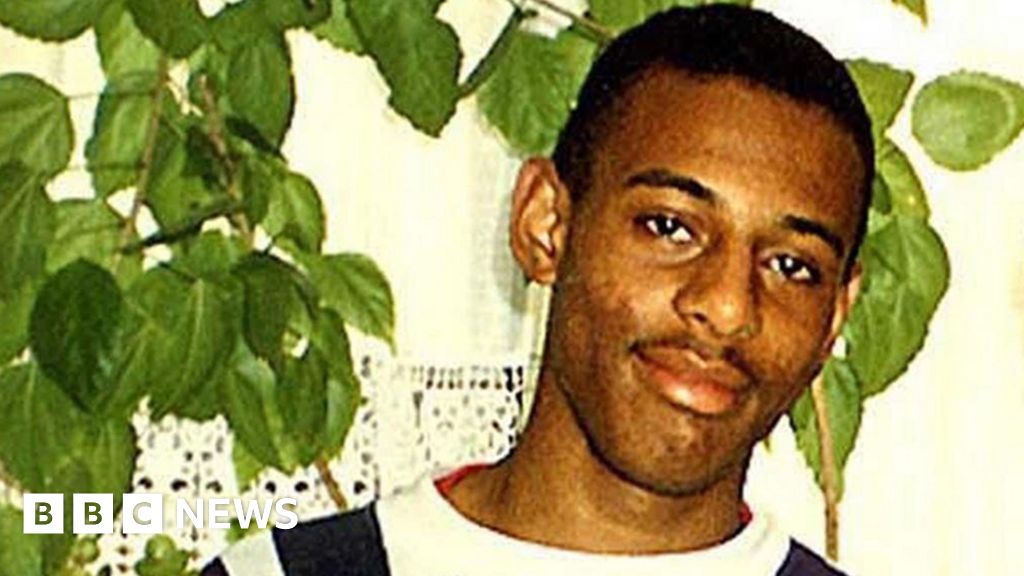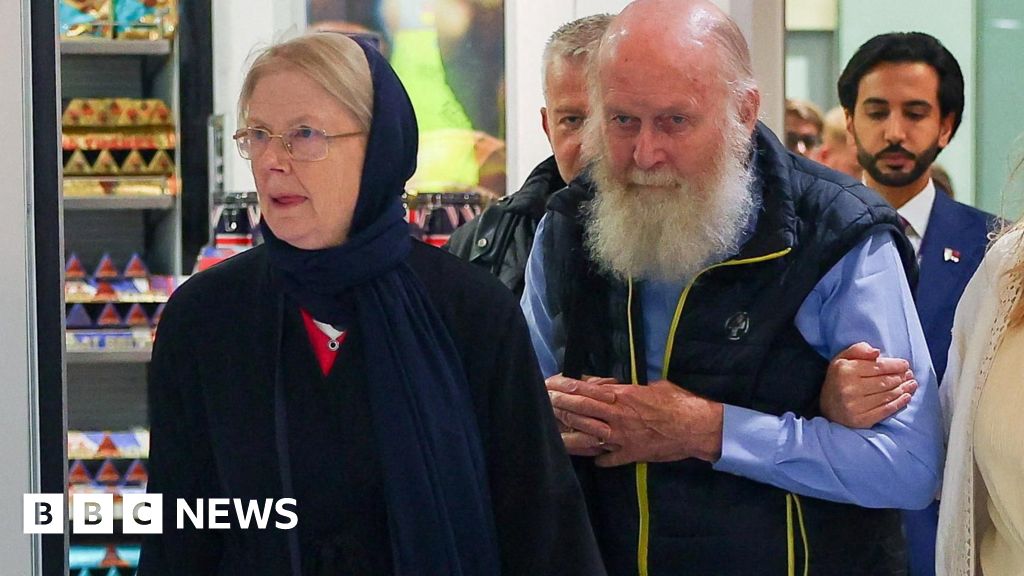
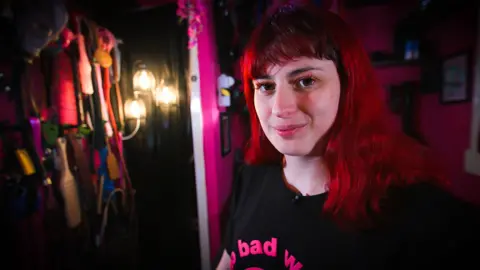 BBC
BBC
Porcelain Victoria is concerned that a change in the law could drive sex workers into poverty
Porcelain Victoria has been selling sex for eight years.
The 26-year-old says that being self-employed allows her to be flexible with her working hours, which helps with childcare.
"I very much enjoy how freeing it is and, of course, bringing a smile to my client's faces," she says.
"In any customer service job, you want to bring a smile to your client's face, whether you're a chef, or a plumber, or just somebody working at a shop."
Porcelain Victoria says she started selling sex when she was 18 and used it as a way to escape an abusive household.
"I plan to do this until I can't, basically. I would love to be doing this in my 60s," she says.
"My plan is to hopefully semi-retire and become a counsellor helping couples and solo people figure out their sexuality when it comes to kinks and fetishes."
But she is concerned that a potential change in the law in Scotland could drive her and other sex workers into poverty.
Independent MSP Ash Regan has put forward a bill that would make it an offence to pay for sexual services. It's an approach often referred to as the Nordic model and was first implemented in Sweden.


Ash Regan's bill will make it an offence to pay for sexual services
Regan, who previously ran in an SNP leadership contest, argues that challenging men's demand for prostitution will help protect women.
At the moment, sex can be sold and bought in Scotland but certain elements - such as soliciting, kerb-crawling and brothel-keeping - are illegal.
Under Regan's plans, selling would be legal and buying would be criminalised. Sex workers would have a statutory right to support and convictions for soliciting would be expunged. The law would not change with regard to brothels.
But the plans are divisive.
Porcelain Victoria, who works in the Fife area, says sex work has given her an income that allows her to give her child the best life she can.
She says criminalising clients will drive sex workers into poverty.
"There's going to be less clients that want to actually come up to us and see us and pay us," she says.
"I know for a fact that if I went into a normal nine-to-five job I wouldn't be able to afford my bills ."
Porcelain Victoria's concerns are shared by Amelia, who the BBC is choosing to keep anonymous. She made the decision to sell sex six years ago.
"I was working in hospitality and I was doing 11-hour shifts with 20-minute breaks," she says.
"I was getting spoken down to quite severely at work, despite being quite a hard worker. It felt like no matter what I did, I just wasn't ever good enough.
"I started doing OnlyFans for a couple of years. And then through online, Instagram and meeting other sex workers, I realised that I was quite interested in doing in-person sex work."
Amelia, who works in the Edinburgh area, does not agree with Regan's belief that a Nordic model will lead to a decrease in violence against women.
She fears such a model would only deter clients who are considered to be "good".
"I think that we're willing to put sex workers at risk of violence to send a message to men. It's insane, and it won't work," she says.
"Because the violent clients who were going to hurt you were breaking the law anyway. They'll happily go and see a sex worker. A client that was going to hurt me will do it, Nordic model or not."
She also fears that other clients, who would be criminalised under these plans, would be unwilling to share their personal details in order to evade the police.
"If I could sit down with a politician and show them how I do my booking process they would immediately see all the ways that the Nordic model would make me unsafe," she says.
"If I can't get my client's name, age, number, basic stuff like that I won't feel safe at work. I could never do a booking without their name."


Bronagh Andrew says there has been a significant increase in the number of trafficked women her organisation has supported this year
Regan dismissed concerns that, according to some, her plans could endanger the people she is trying to protect.
"That's complete nonsense," she says. "At the moment the power balance between somebody working in prostitution and the punter is very much in the punter's favour and quite often punters use that in order to exploit women's vulnerabilities more.
"So they'll say to them 'you know if you don't do what I say I'll tell the police about you' and so on, whereas it turns around in the Nordic model. The women in prostitution can say to the punter: 'No I'm not going to comply with that request, and I can call the police on you'.
"It doesn't sound like a lot but that is a subtle power shift which I think gives more security and more safety to those working in prostitution."
Porcelain Victoria and Amelia both fully accept that not everyone selling sex has chosen to do so and they do not speak for every sex worker in Scotland.
Regan has the support of others who have previously been involved in the trade and some of those who work to support them.
Bronagh Andrew is operations manager of Tara (Trafficking Awareness Raising Alliance), a support service for survivors of trafficking.
It strongly supports Regan's plans, based on the organisation's experience of the sex trade.
It has seen a significant increase in the number of trafficked women it has supported this year.
"Between April and September this year, we supported 124 individual women," Ms Andrew said.
"Within that six-month period, 43 of those women had been newly identified and referred to us, which is a big jump on the previous this year."
The women supported by Tara are extremely vulnerable. Ms Andrew was clear that the organisation would never put anyone forward to be interviewed, due to the trauma they had suffered.
"Traffickers use lots of different and creative ways to keep women under their control," she says.
"So women will have no English, many women are disorientated and don't really know what part of the UK they're in. We had one young woman who was referred to us who thought she was in Toronto - she didn't know she was in Glasgow."
Just last week, the Scottish government said it "strongly supports" making it illegal to buy sex - but had "significant concerns" about Ash Regan's bill.
Ministers want to see "substantial amendments" to the legislation, meaning it is unlikely to pass before parliament breaks up for next year's election.
This is a complex debate. Both sides want the same thing and that is to improve the lives of women.
But they have very different views on what that improvement should look like.
.png)
 32 minutes ago
1
32 minutes ago
1


